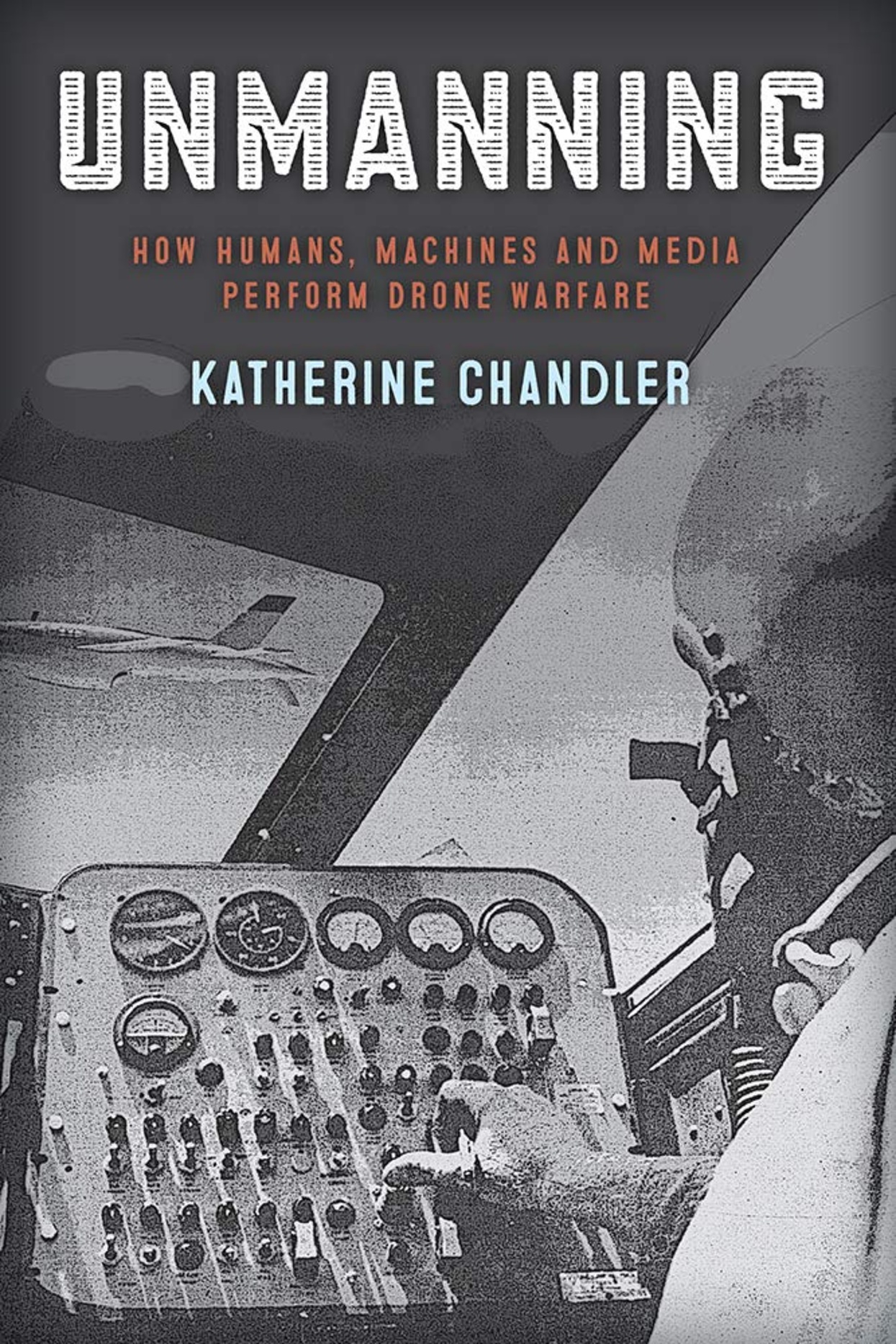Alum Katherine Chandler Publishes Unmanning

Alum Katherine Chandler, PhD in Rhetoric, recently published her book Unmanning! Katherine is currently an assistant professor in the Culture and Politics program at the Walsh School of Foreign Service, Georgetown University.
Unmanning studies the conditions that create unmanned platforms in the United States through a genealogy of experimental, pilotless planes flown between 1936 and 1992. Characteristics often attributed to the drone—including machine-like control, enmity and remoteness—are achieved by displacements between humans and machines that shape a mediated theater of war. Rather than primarily treating the drone as a result of the war on terror, this book examines contemporary targeted killing through a series of failed experiments to develop unmanned flight in the twentieth century. The human, machine and media parts of drone aircraft are organized to make an ostensibly not human framework for war that disavows its political underpinnings as technological advance. These experiments are tied to histories of global control, cybernetics, racism and colonialism. Drone crashes and failures call attention to the significance of human action in making technopolitics that comes to be opposed to “man” and the paradoxes at their basis.
From Rutgers University Press:
"This book makes a much-needed intervention into the popular discourses that surround drone warfare today. Drawing on extensive archival research, Unmanning offers detailed histories that deconstruct the most persistent mythologies of air war in general and automated and distance weaponry in particular to offer completely new perspectives on one of the most significant technological trends in contemporary warfare."
--Caren Kaplan, author of Aerial Aftermaths: Wartime from Above
"In Unmanning, Katherine Chandler offers a compelling history of the drone that complicates and deepens our understanding of what is at stake in the performative rhetoric that fuels the automation of US military air power. This book is an invaluable resource for everyone concerned with the erasures of human agencies that enable claims for technical autonomy in contemporary warfighting."
--Lucy Suchman, author of Human-Machine Reconfigurations
To read the full post click here.
